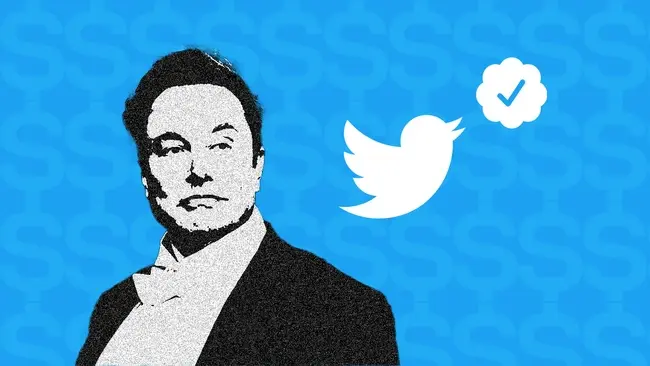Twitter’s announcement of a new subscription service which is set to overhaul verification on its platform has sparked concern from the enterprise, industry experts have said.
The new model, which was announced on Saturday (November 5) will allow users to “sign up” and pay a monthly fee of $8 to receive the site’s famous “verified” blue badge, a feature which strays far from the old verification system of high-profile users being verified by trusted sources.
The controversial change comes less than a month after the social media platform was officially acquired by billionaire Elon Musk, who claimed the new model would give “power to the people” and replace a “lords and peasants system” in a series of tweets posted last week.

Read more about cybersecurity on our dedicated Business Continuity page
The Tesla CEO also said that the new subscription would also allow blue tick subscribers to have “priority in replies, mentions and search”, which he believes will reduce spam and improve user experience on the site.
Yet, with an alarming number of high-profile Twitter executives announcing their departure from the platform, an air of concern has swept across the enterprise landscape as it remains unclear how the site will operate under this paid overhaul to verification.
A Worrying New Age for Advertisers
It is clear that Musk’s takeover of Twitter has sparked concern amongst high executives and advertisers operating on the platform.
While many top advertising firms attempt to wait out the Elon storm, some of the site’s major ad partners, such as Pfizer, General Mills and Audi, were quick to part ways with the platform amidst concerns about a rise in misinformation and inappropriate behaviour.
Evidence from the Network Contagious Research Institute (NCRI) justified advertisers' concern. The independent social cyber-security organisation reported on the use of the N-word increased 500% just 12 hours after Elon’s takeover, whilst anti-semitic rhetoric has reached a rate of 5k times per hour following Elon’s announcement of his new verification system.
Elon’s conservative approach to content moderation could severely damage brands if they are placed next to an “upstream predictor of real-world violence” – to borrow the words of the NCRI.
The billionaire’s announcement of Twitter’s new paid verification system has only added fuel to the flames of anxiety. As the Wall Street Journal reports, one of Twitter’s largest advertising companies, Interpublic Group, has described the current situation as “unpredictable and unsafe”, with concerns of “bad actors and unsafe behaviours'' being able to thrive in this new age of unmonitored online verification.
Follow EM360 on LinkedIn for more enterprise tech news
An Internal Concern
Twitter advertisers aren’t alone in their concern for Elon’s pledge to transform Twitter. In fact, some of the company’s most respected high-profile executives have resigned and openly expressed their concerns for Elon’s changes to the platform’s verification system.
One of Twitter’s top ad executives announced her resignation last week, joining a long list of departures from the company stemming from resignations and corporate layoffs.
With Twitter losing around half of its total staff of 7500, business partners worry of a significant absence of content moderation that could lead to surges in fraud communications and data breaches across the platform.
Twitter verification, a new wave of phishing scams, and what this means for the enterprise
As Twitter launches its new $8 subscription plan, cybercriminals are beginning to take advantage of the uncertainty caused by its announcement.
John Stevenson, product director of internet security firm Cyren, describes these new phishing campaigns as a “perfect example” of Elon’s changes being utilised by criminals to increase the success rate of these scams.
As Bleeping Computer reports, these threat actors target verified accounts and urge them to sign in to their Twitter account or risk their account being suspended. The publication found these emails to originate from hacked WordPress websites using dated or vulnerable versions of plugins.
The scams could lead to accounts being hacked and used to impersonate high-profile account holders. Similar phishing scams successfully hacked verified accounts such as those of the UK Army and Youtube, which were hacked to promote a Crypto Scam this July.
If scams like these become prevalent on the platform, the $8 subscription plan could lead to trustworthy accounts being inseparable from imposters.




Comments ( 0 )